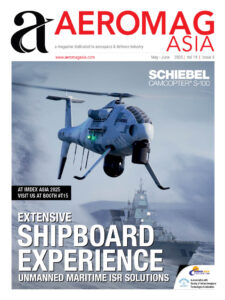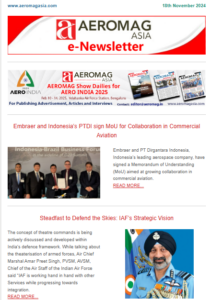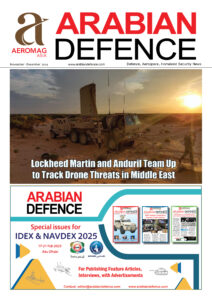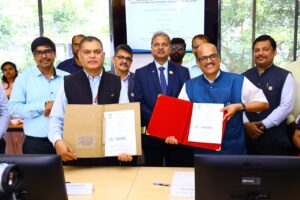
Airbus, Kansai Airports, and Kawasaki Heavy Industries have signed a Memorandum of Understanding (MoU) to assess the feasibility of hydrogen infrastructure at three airports in the Kansai region: Kansai International Airport, Osaka International Airport, and Kobe Airport.
This collaboration aims to conduct an initial feasibility study for the introduction and operation of hydrogen aircraft as part of the “Hydrogen Hub at Airports” program. The partnership will focus on developing a hydrogen infrastructure and supply roadmap tailored to the specific characteristics of the airports and the aircraft that will use them.
The study will evaluate various aspects, including technology, economics, legal compatibility, and operational requirements. Solutions to identified challenges will be explored through potential demonstration projects, leading to the development of a roadmap and policy recommendations.
Since 2022, Airbus has been working with Kansai Airports to explore hydrogen applications in airport infrastructure, where Kansai Airports has demonstrated advanced hydrogen solutions, such as fuel cell buses and forklifts. Each of the three airports has unique geographical and traffic characteristics, allowing Airbus to investigate multiple hydrogen supply methods.
Airbus has also collaborated with Kawasaki to prepare the hydrogen-fuel ecosystem. Kawasaki, as a leading hydrogen solution provider, has showcased its expertise in designing end-to-end cryogenic hydrogen supply networks. The company has experience installing baggage handling systems and other technologies at various airports.
These efforts have led to a deeper understanding of hydrogen infrastructure at airports, advancing the partnership into a second phase of integrated feasibility studies. The collaboration aims to incorporate insights from both the supply chain and airport operations.
Under this partnership, Airbus has forecasted a demand for liquid hydrogen at the airports, estimating a need for a few tons per day to support initial aircraft operations, with projections rising to several hundred tons per day by 2050. Airbus recognizes a mature hydrogen industry presence in Kansai, backed by comprehensive policy measures, positioning it as a promising market for hydrogen aviation.
“Hydrogen is attracting global attention as a way to decarbonise. The Japanese Government is promoting a hydrogen-based energy strategy to achieve its carbon neutrality target by 2050,” said Karine Guenan, Head of ZEROe Ecosystem. “We believe our partnership with Japanese companies under the Hydrogen Hubs at Airports programme will contribute to the introduction of a hydrogen-powered aircraft by 2035.”
“Kansai Airports has set a vision to achieve net-zero greenhouse gas emissions by 2050 and is actively pursuing various initiatives, including the use of hydrogen, to reduce environmental impact,” stated Yoshiyuki Yamaya, Representative Director and CEO, and Benoit Rulleau, Representative Director and Co-CEO of Kansai Airports. “We are delighted that this partnership will not only help us crystallise hydrogen solutions in the airport sector but also contribute to the decarbonization of the aviation industry.”
“Kawasaki has been developing technologies necessary for establishing an international hydrogen supply chain, recognizing early the value of hydrogen as a clean energy carrier,” said Motohiko Nishimura, Executive Officer and Deputy General Manager of the Hydrogen Strategy Division at Kawasaki. “We believe that this three-company partnership will be a step towards a solution for decarbonization in the aviation industry, where reducing CO2 emissions has been challenging.”
Through this MoU, Airbus, Kansai Airports, and Kawasaki aim to accelerate the decarbonization of airport infrastructure in Japan, paving the way for a future where hydrogen aircraft can operate effectively.
The initiative not only seeks to reduce aircraft emissions but also aims to decarbonize ground transport activities at airports. In 2020, Airbus introduced its ZEROe concepts, aiming to launch the world’s first hydrogen-powered commercial aircraft by 2035. Development efforts are currently underway within a global Research & Technology network.
Airbus’s “Hydrogen Hub at Airports” program is designed to kickstart research into infrastructure requirements and low-carbon airport operations across the value chain, with partnerships established in 14 countries, including Japan, France, Germany, and the U.S.











